Filter by
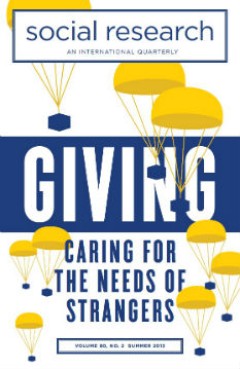
Social Research, Volume 80, Nomor 2, Summer 2013
- Edition
- -
- ISBN/ISSN
- 0037-783X
- Collation
- -
- Series Title
- -
- Call Number
- -
- Edition
- -
- ISBN/ISSN
- 0037-783X
- Collation
- -
- Series Title
- -
- Call Number
- -

Pembangunan untuk Semua: mengelola pembangunan regional ala SBY
Buku ini membahas mengenai uapay Presiden SBY dalam mengelola kebijakan pembangunan nasional di era yang sedang berubah (policy-making process in the changing context). Buku ini mengurai persoalan mendasar dalam pembangunan daerah, agenda kebijakan, danlangkah demi langkah yang telah dilakukan oleh Presiden dalam menyatukan semua potensi anak bangsa guna menggapai visi nasional kita, yait…
- Edition
- -
- ISBN/ISSN
- 978-602-99998-1-5
- Collation
- 425p.; 21 cm
- Series Title
- -
- Call Number
- 338.959 8 WAN p

Masalah Negara Kepulauan di Era Globalisasi
Buku ini mendeskripsikan data dan kajian tentang masalah-masalah yang dihadapi oleh Indonesia sebagai Negara kepulauan. Ada enam kajian yang dipaparkan; pertama tentang budaya maritime, geopolitik dan tantangan keamanan Indonesia; kedua , tentang pengelolaan wilayah pesisir dan laut oleh pemerintah pusat dan pemerintah daerah; ketiga, tentang studi perbandingan program pemberdayaan masyar…
- Edition
- 1st print
- ISBN/ISSN
- 978-602-8722-26-1
- Collation
- xi, 205p.; 24 cm
- Series Title
- -
- Call Number
- 352 NAI m

Wilayah Pesisir & Pulau-Pulau Keecil di Indonesia
Buku ini menelaah berbagai aspek pengelolaan wilayah pesisir dan pulau-pulau kecil di Indonesia. Ada lima persoalan yang disorot: Pertama, tentang hak pengusahaan perairan pesisir yang boleh diberikan kepada masyarakat lokal, nelayan tradisional, dan pelaku usaha; Kedua, nilai strategis coral triangle initiative bagi masyarakat pesisir; Ketiga, peran lembaga swadaya masyarakat inter- n…
- Edition
- 1st print
- ISBN/ISSN
- 978-979-9052-81-0
- Collation
- xix, 188p.; 24 cm
- Series Title
- -
- Call Number
- 352 NAI w
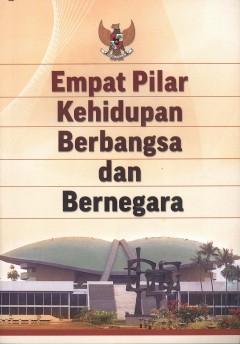
Empat Pilar Kehidupan Berbangsa dan Bernegara
Negara Indonesia adalah Negara yang besar. Sejak awal berdirinya Negara Kesatuan Republik Indonesia, para pendiri Negara menyadari bahwa Bangsa Indonesia merupakan bangsa yang majemuk karena terdiri atas berbagai suku bangsa, adat istiadat, budaya, bahasa daerah serta agama yang berbeda-beda. Dengan keanekaragaman tersebut, mengharuskan setiap langkah dan kebijakan Negara dalam kehidupan…
- Edition
- -
- ISBN/ISSN
- 978-602-9053-26-5
- Collation
- xxii, 214p.; 20 cm
- Series Title
- -
- Call Number
- 320.959 8 IND e
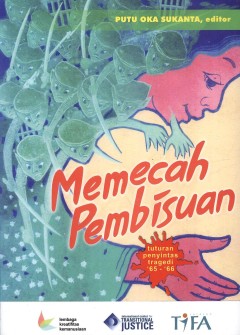
Memecah Pembisuan: tuturan penyintas tragedi 65-66
Peristiwa G 30 S telah menjadikan banyak keluarga-keluarga yang menjadi susah hidupnya karena masalah ketidaktahuannya sebagai masyarakat tentang apa yang sebenarnya terjadi pada tahun 1965 itu. Buku ini merupakan kumpulan artikel yang mendokumentasikan tentang kehidupan yang pernah dan sekarang dijalani para korban yang dituturkan melalui berbagai cerita yang dituliskan. Sebagai suatu p…
- Edition
- -
- ISBN/ISSN
- 978-602-99858-0-1
- Collation
- xviii, 315p.; 21 cm
- Series Title
- -
- Call Number
- 959.8 SUK m

Evaluasi Otonomi Daerah dalam Perspektif Peningkatan Kesejahteraan dan Perlua…
Kajian yang dilakukan oleh Sekjen DPD RI ini merupakan dukungan keahlian terhadap kebijakan lembaga dalam mengevaluasi pelaksanaan otonomi daerah dengan fokus penelitian pada Provinsi Nusa Tenggara Barat dan Kalimantan Tengah. Landasan evaluasi dilakukan dengan pendekatan kapabilitas, dimana kesejahteraan tidak diukur semata melalui peningkatan pendapatan ekonomi masyarakat, tetapi dik…
- Edition
- -
- ISBN/ISSN
- -
- Collation
- vii, 89p.; 21 cm
- Series Title
- -
- Call Number
- 352 IND e
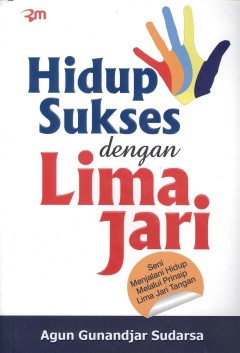
Hidup Sukses dengan Lima Jari: seni menjalani hidup melalui prinsip lima jari…
Buku ini menceritakan perjuangan hidup sang pengarangnya Agun Gunandjar Sudarsa. Dari bukan siapa-siapa menjadi seorang yang dikenal public karena berbagai gagasan-gagasan selama menjadi anggota legislative selama empat periode. Buku biography yang kaya akan motivasi hidup ini terlihat jelas bagaimana sebenarnya kehidupan ini disikapi oleh setiap orang dengan pandangannya masing-masin…
- Edition
- -
- ISBN/ISSN
- 978-602-7936-12-6
- Collation
- xiii, 156p.; 21 cm
- Series Title
- -
- Call Number
- 920 SUD h

Journal of Democracy, Volume 24 Number 2, April 2013
- Edition
- -
- ISBN/ISSN
- 1045-5736
- Collation
- -
- Series Title
- -
- Call Number
- -
- Edition
- -
- ISBN/ISSN
- 1045-5736
- Collation
- -
- Series Title
- -
- Call Number
- -

Multicultural citizenship education in Indonesia: The case of a Chinese Chris…
This study investigates how multicultural citizenship education is taught in a Chinese Christian school in Jakarta, where multiculturalism is not a natural experience. Schoolyard ethnographic research was deployed to explore the reality of a �double minority� � Chinese Christians � and how the citizenship of this marginal group is constructed and contested in national, school, and familial disc…
- Edition
- -
- ISBN/ISSN
- 0022-4634
- Collation
- -
- Series Title
- -
- Call Number
- -
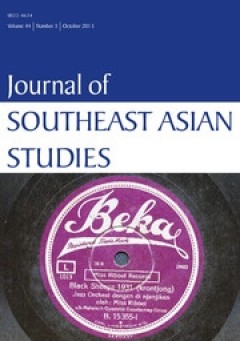
The Great Depression and the changing trajectory of public education policy i…
From the turn of the century up until the 1930s, public education under Dutch rule in Indonesia developed both quantitatively and qualitatively, but this expansion was interrupted, and even reversed, by the onset of the Great Depression. Focusing on schoolteachers in particular, this essay examines the trajectory of education policies in colonial Indonesia in response to the crisis, from the in…
- Edition
- -
- ISBN/ISSN
- 0022-4634
- Collation
- -
- Series Title
- -
- Call Number
- -

Southeast Asia in the age of jazz: Locating popular culture in the colonial P…
Referencing insights from Cultural Studies and taking a jazz-age perspective, this essay aims to historicise and �locate the popular� in colonial Indonesia and the Philippines. A new cultural era dawned in the 1920s urban hubs of Southeast Asia, associated with the creation of novel forms of vernacular literature, theatre, music and their consumption via the print press, gramophone, radio broad…
- Edition
- -
- ISBN/ISSN
- 0022-4634
- Collation
- -
- Series Title
- -
- Call Number
- -

Patriotic hygiene: Tracing new places of knowledge production about malaria i…
This article examines knowledge production about malaria in colonial and postcolonial Vietnam. During the 1920s and 1930s, medical doctors cooperated with plantation managers in order to develop industrial hygiene techniques consisting of environmental modification and quinine use. By the 1930s, changing motivations, in particular racial hygiene and patriotism, drove malaria control efforts. Th…
- Edition
- Vol. 44, Number 3, October 2013, p.423 - 443
- ISBN/ISSN
- 0022-4634
- Collation
- -
- Series Title
- Journal of Southeast Asian Studies
- Call Number
- -

The meaning of dukun and allure of Sufi healers: How Persian cosmopolitans tr…
For contemporary Malay/Indonesian speakers, dukun signifies an indigenous healer. Etymologically, however, the word dukun is not native to Malay/Indonesian. Some say dukun is Arabic, but this article claims it is more Persian than Arabic. When fifteenth-century Persian settlers brought the proto-form of the word dukun to the Malay Archipelago, they also brought cosmopolitan notions of Sufism, f…
- Edition
- Vol. 44, Number 3, October 2013, p.400 - 422
- ISBN/ISSN
- -
- Collation
- -
- Series Title
- Journal of SOutheast Asian Studies
- Call Number
- -

State formation and the evolution of naval strategies in the Melaka Straits, …
The Strait of Melaka and connected waterways have been critical to, and directly affected, the formation of littoral states, societies and economies in eastern Sumatra, the Riau Islands, the Malay Peninsula, and Singapore. The history and nature of statehood in the region is interrelated to the way in which naval capabilities evolved, but, as argued in this article, perhaps not in the straightf…
- Edition
- Vol. 44, Number 3, October 2013, p.380 - 399
- ISBN/ISSN
- 0022-4634
- Collation
- p. 380-399
- Series Title
- Journal of Southeast Asian Studies
- Call Number
- -

Journal of Southeast Asian Studies, Volume 44, Number 3 October 2013
- Edition
- -
- ISBN/ISSN
- 0022-634
- Collation
- -
- Series Title
- -
- Call Number
- -
- Edition
- -
- ISBN/ISSN
- 0022-634
- Collation
- -
- Series Title
- -
- Call Number
- -
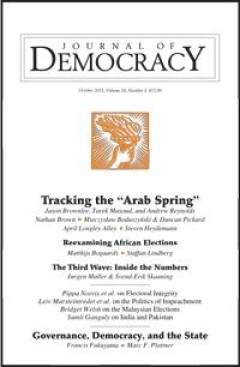
Journal of Democracy, Volume 24, Number 4, October 2013
- Edition
- -
- ISBN/ISSN
- 10455736
- Collation
- -
- Series Title
- -
- Call Number
- -
- Edition
- -
- ISBN/ISSN
- 10455736
- Collation
- -
- Series Title
- -
- Call Number
- -
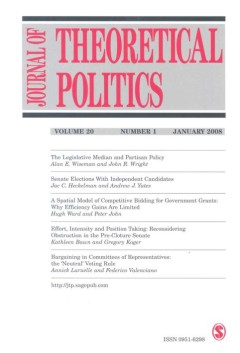
Informative Party Labels With Institutional and Electoral Variation
We study a model of party formation in which the informativeness of party labels and inter-party ideological heterogeneity are endogenously and jointly determined in response to electoral incentives. Parties use screening to increase the cost of affiliation for politicians whose ideal points diverge from the party platform. Because affiliation decisions are endogenous, increased screening decre…
- Edition
- Vol. 20, No. 3, Page 251-273
- ISBN/ISSN
- 0951-6298
- Collation
- -
- Series Title
- Journal of Theoretical Politics
- Call Number
- -
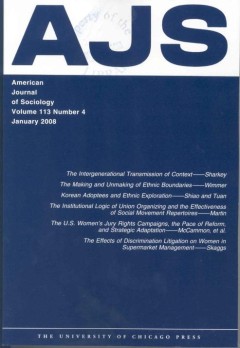
From the ¡Ya Basta! to the Caracoles: Zapatista Mobilization under Transitio…
This study draws on the literature on political opportunity structures to investigate the effects of local and national factors on the Zapatista cycle of protest from 1994 to 2003. A cross-sectional, time-series, negative binomial model for event counts is used to analyze the ebb and flow of Zapatista protests across the 111 municipios (municipalities) of Chiapas during this 10-year perio…
- Edition
- Vol. 113, No. 5, Page 1316-1350
- ISBN/ISSN
- 0002-9602
- Collation
- -
- Series Title
- American Journal of Sociology
- Call Number
- -
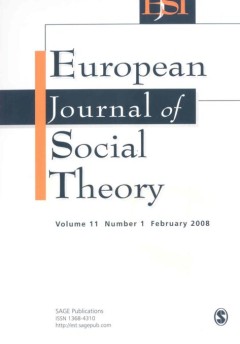
Space, Grossraum and Mitteleuropa in Some Debates of the Early Twentieth Century
The idea of Mitteleuropa began to gain momentum in the German geopolitical science of the beginning of the twentieth century. German geopolitics, which became famous through the works of Karl Haushofer, had set out a geographical and political notion of Mitteleuropa that supported a political project based on German expansion. As such, Mitteleuropa developed as both a political and scient…
- Edition
- Vol. 11, No. 2, Page 185-201
- ISBN/ISSN
- 1368-4310
- Collation
- -
- Series Title
- European Journal of Social Theory
- Call Number
- -
 Computer Science, Information & General Works
Computer Science, Information & General Works  Philosophy & Psychology
Philosophy & Psychology  Religion
Religion  Social Sciences
Social Sciences  Language
Language  Pure Science
Pure Science  Applied Sciences
Applied Sciences  Art & Recreation
Art & Recreation  Literature
Literature  History & Geography
History & Geography